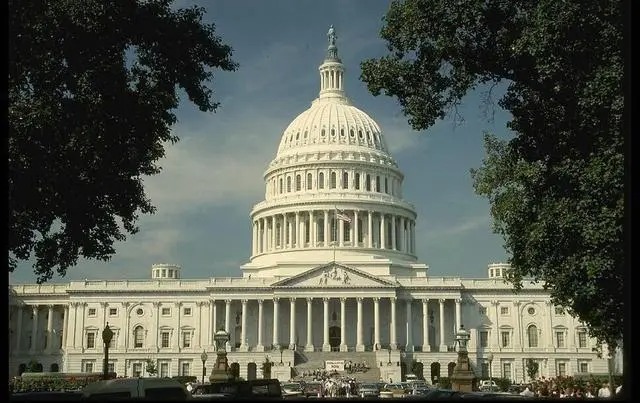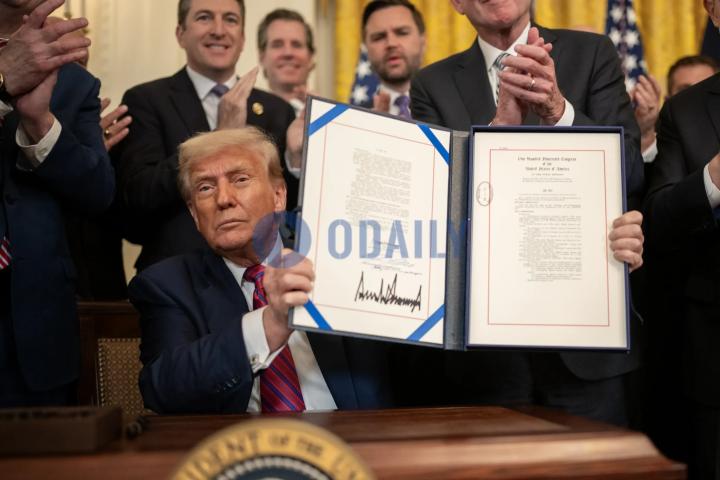The United States aims to build a global crypto capital, reform the securities regulatory framework, and comprehensively migrate financial markets to the chain
Speaker: Paul S. Atkins, Chairman of the SEC
Translated by: Alex Liu, Foresight News
The United States' Leadership in the Digital Financial Revolution
Good afternoon. Thank you for Norm's enthusiastic introduction, and thank you for inviting me. I am very happy to gather with everyone, especially at this critical moment when the United States is demonstrating leadership in the crypto asset market. Before sharing some thoughts, I want to thank the America First Policy Institute for convening this timely discussion. Additionally, to put the compliance team at ease, I must declare that the views I express today represent only my personal opinion and do not necessarily represent the position of the SEC institution or other commissioners.
[The rest of the translation follows the same professional and accurate approach, maintaining the original meaning and tone while translating into English.]According to the PWG Report recommendations, one of my primary tasks is to quickly establish a regulatory framework for crypto asset issuance in the United States. Capital formation is one of the SEC's core missions, but for a long time, the SEC has ignored market demand for choice and suppressed crypto-based financing models. This has led the crypto market to gradually move away from asset issuance, depriving U.S. investors of the opportunity to participate in productive economic activities through this technology. The SEC's long-standing avoidant approach to crypto assets should become a matter of "shoot first, ask questions later" history.
Although the SEC's past stance was to view most crypto assets as securities, in reality, most crypto assets are not securities. However, due to the ambiguous scope of the "Howey Test", some innovators have cautiously treated all crypto assets as securities. U.S. entrepreneurs are using blockchain technology to modernize various traditional systems and tools. For example, Ohio's current federal senator and former entrepreneur Bernie Moreno founded a company that puts car ownership certificates on the blockchain before running for office. He saw efficiency issues in property transfers and proposed a practical solution using blockchain technology.
These entrepreneurs need and should have a clear set of criteria to help them determine whether their business is subject to securities laws. I have instructed committee staff to develop clear guidelines to help market participants determine whether a crypto asset is a security or constitutes an investment contract. Our goal is to help them categorize crypto assets such as digital collectibles, digital goods, or stablecoins according to these clear standards and assess their economic substance. Through these classifications, market participants can determine whether the issuer has ongoing commitments or obligations, and thus whether the asset constitutes an investment contract.
Moreover, being classified as a security should not be a sin of development. We need a regulatory framework that adapts to crypto securities, allowing these products to thrive in the U.S. market. Many issuers will prefer to use the product design flexibility provided by securities laws, and investors will benefit from security attributes such as dividends and voting rights. Project teams should not be forced to establish DAOs, create offshore foundations, or decentralize prematurely. I am excited about new commercial applications of crypto securities, such as participating in blockchain consensus mechanisms through tokenized stocks.
Therefore, for crypto asset transactions that indeed fall under securities law, I have requested staff to propose specific disclosure regulations, exemption clauses, and a "safe harbor" system, including for so-called "Initial Token Offerings (ICO)", "airdrops", and network reward programs. Our goal is to encourage issuers to include U.S. users in their issuance plans, enjoying legal certainty and a friendly regulatory environment, rather than excluding them due to legal risks. I believe that by maintaining this direction, we may witness an innovative Cambrian explosion.
Additionally, many companies wish to "tokenize" ordinary stocks, bonds, partnership interests, or securities issued by other parties. Due to U.S. regulatory barriers, such innovations mostly occur overseas. Our policy department has received numerous applications—from well-known Wall Street companies to Silicon Valley unicorns—all hoping to obtain approval to distribute security tokens within the United States. I have requested the committee to collaborate with these companies and provide regulatory exemptions where appropriate to ensure the U.S. is not left behind in crypto innovation.
[The translation continues in the same manner for the rest of the text.]We will leave room for the development of these two modes - centralized and decentralized - in the U.S. market. We will protect developers who simply publish software code, reasonably draw the line between intermediary participation and non-intermediary activities, and establish clear and feasible regulatory rules for intermediary institutions that wish to operate on-chain software systems. DeFi and other on-chain software systems will become part of our securities market, rather than being stifled by redundant or excessive regulation.
To realize this vision, we need to modify existing rules. For example, to support on-chain trading of securities, we may need to revise the National Market System Regulation (Reg NMS). In fact, I had co-authored a dissenting opinion against Reg NMS with then-Commissioner Cynthia Glassman twenty years ago, and today, those concerns seem more relevant. Over the past twenty years, the excessive requirements imposed by Reg NMS have distorted market activities and hindered the natural evolution of the U.S. securities market. Congress had envisioned that "competitive forces, not redundant regulation" would drive the development of the national market system. I will strive to bring us back to this original intent and further promote innovation and competition in the market.
Driving Innovation: Business Viability as Our North Star
Finally, innovation and entrepreneurial spirit are the engines of the American economy. President Trump once called America the "nation of builders". Under my leadership, the SEC will encourage this spirit, rather than suppressing it with bureaucratic and one-size-fits-all rules. The current commission is actively considering some reform proposals from the industry to stimulate innovation; at the same time, we are exploring the introduction of an "innovation exemption mechanism" - allowing registered and unregistered institutions to quickly bring new business models and services to market, even if these models do not perfectly match existing rules.
In my vision, this innovation exemption mechanism will allow technological pioneers and business innovators to immediately participate in the market without having to comply with outdated or economically obstructive regulations. Correspondingly, they will need to comply with some principle-based conditions to achieve the core policy objectives of federal securities laws. These conditions may include: commitment to periodic reporting to the SEC, introduction of a whitelist or "certification pool" function, and allowing only securities tokens that meet compliance function standards (such as ERC3643) to circulate. I encourage market participants and SEC staff to consider "business viability" as a core consideration when developing models.
Conclusion
While advancing these priority items, I look forward to collaborating with other government departments to jointly build the United States into a global crypto hub. This is not just a transformation of regulatory models, but a cross-generational opportunity.
From paper agreements under the sycamore tree to electronic ledgers on the blockchain, the wind of innovation continues to blow. Our mission is to let this wind continue to drive America's leadership forward. After all, ladies and gentlemen, we have never been satisfied with following others. We will not stand on the sidelines. We will lead the trend. We will build it ourselves. And we will ensure that the next chapter of financial innovation is written in the United States.
Thank you very much for listening today. Please stay tuned for our upcoming announcements and proposals, and we welcome your valuable suggestions and comments as always.








